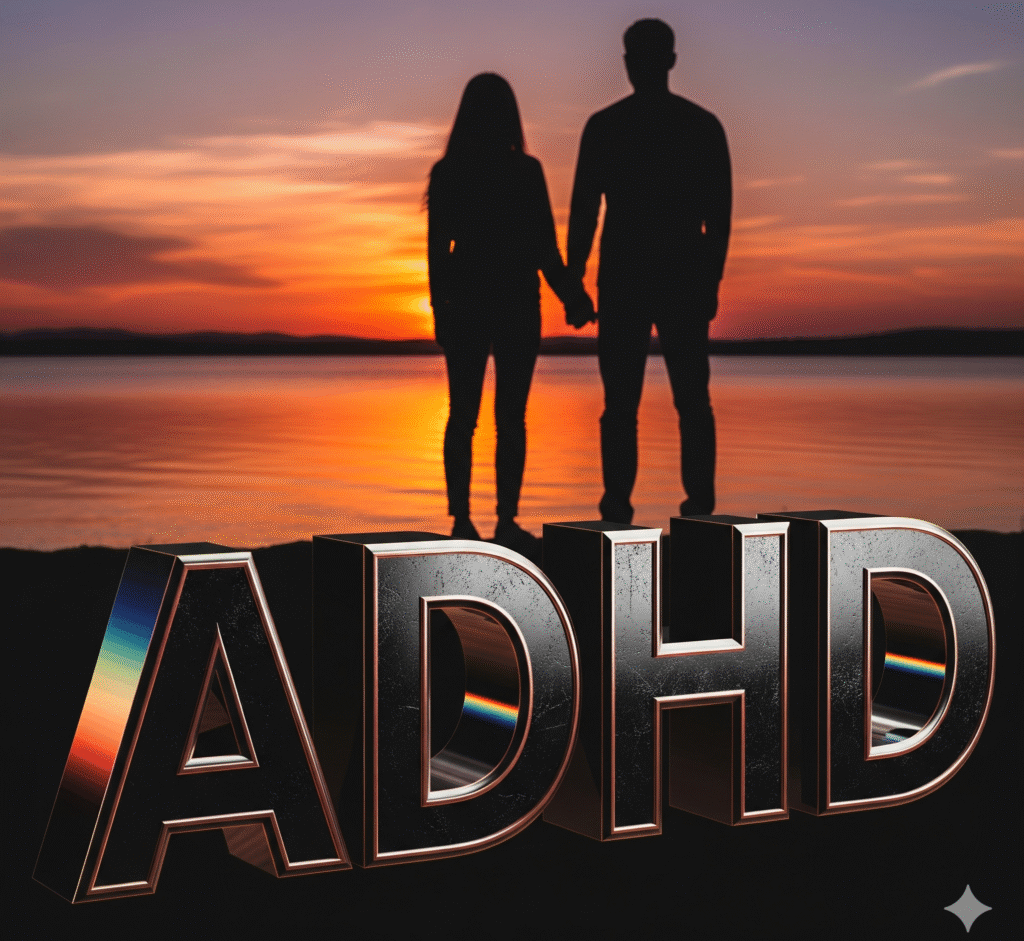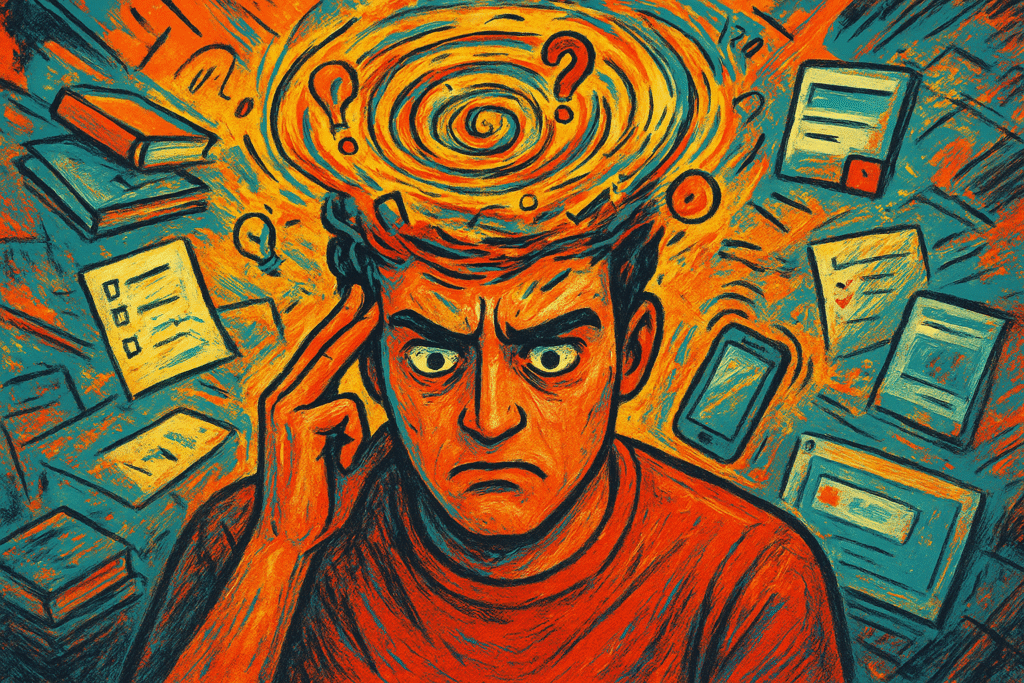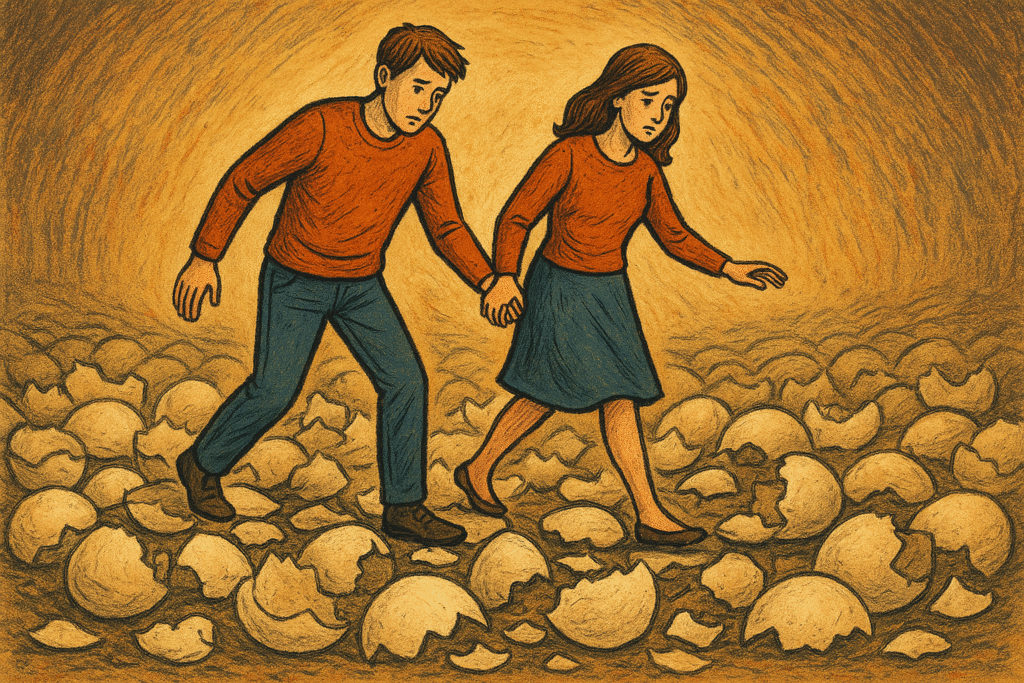Adult ADHD Counselling in Singapore: Supporting Relationships

Adults with Attention-Deficit Hyperactivity Disorder (ADHD) often face challenges with impulsivity, inattentiveness, and hyperactivity. In a marriage, these difficulties can be intensified, especially when one partner unintentionally takes on a parental role. This can lead to a cycle of blame, frustration, and disappointment. Adult ADHD in Singapore presents unique challenges for couples, but help is available.
However, many couples successfully manage these issues by addressing them directly. A proper ADHD diagnosis is often the first step, allowing both partners to understand the situation and work together to build a healthier relationship. At Relate Works, our specialized Adult ADHD counselling can guide you through this process.

The Impact of Undiagnosed ADHD on Relationships
When ADHD goes undiagnosed, a relationship can be significantly harmed. If both partners have ADHD, conflicts can escalate and cause lasting emotional damage. One common symptom is a shift in attention, which can make the non-ADHD partner feel ignored. This is a frequent concern addressed in ADHD relationship counselling in Singapore.
Initially, a person with ADHD might become so intensely focused on their partner—a state known as hyperfocus—that the partner feels like the most important person in the world. However, this focus eventually shifts to other interests, leaving the spouse feeling neglected and alone. They may grow resentful of having to manage all household duties while their partner seems to be able to do as they please.
On the other hand, the partner with ADHD may feel constantly nagged, criticized, and micromanaged. Recognizing the symptoms and seeking a diagnosis through Adult ADHD support in Singapore at Relate Works can be the key to turning the relationship around.
“Professional Adult ADHD Counselling in Singapore can help partners understand the symptoms and begin to heal.”
The Consequences of Untreated Adult ADHD
Untreated ADHD can create a tense home environment where the non-ADHD partner feels they must “walk on eggshells” to avoid outbursts. To prevent arguments, they may become overly accommodating or passive, trying to anticipate their partner’s reactions. This constant stress is damaging to both individuals, underscoring the importance of seeking Adult ADHD counselling Singapore at RelateWorks before issues escalate.
Overcoming Denial in Adult ADHD Relationship
Even after a diagnosis, some individuals with ADHD may deny the impact their condition has on their relationships. Therapists often advise clients to assume that ADHD does affect their marriage and to seek professional help through counselling for Adult ADHD to honestly evaluate the situation.

Understanding and Avoiding Misinterpretation in ADHD Couples
A significant challenge for the non-ADHD partner is learning not to misinterpret their spouse’s symptoms. Distraction or inattentiveness doesn’t mean a lack of love; it means the person with ADHD is struggling to focus. Therapists suggest spending more time together to better understand how ADHD symptoms affect the relationship, a process often facilitated in Relate Works’ Adult ADHD therapy sessions.
A non-ADHD partner cannot simply force their spouse to become more organized or responsible. Pushing too hard often leads to more resistance and higher frustration for both people. The individual with ADHD may feel demoralized by the constant criticism, while the non-ADHD partner may feel exhausted, depressed, and resentful. This dynamic is a key focus of Adult ADHD counselling in Singapore offered by Relate Works.
A Path Forward for Adult ADHD Couples
To begin healing, couples first need to learn everything they can about the symptoms of ADHD. This helps them see the person, not just the symptoms. For example, a person with ADHD isn’t necessarily “irresponsible”—that is a symptom of their condition. Similarly, the non-ADHD partner’s nagging is often a byproduct of the situation, not a core character trait. This understanding is central to effective Adult ADHD relationship counselling at Relate Works.
Rebuilding the Relationship with Adult ADHD
At Relate Works, our Adult ADHD counselling guides you through these steps:
Acknowledge the Hurt: Both partners must honestly recognize and take responsibility for the pain caused by untreated ADHD symptoms.
Dissolve the Parent/Child Dynamic: Work together to find a balance of power in the relationship. Establish clear rules, such as no nagging or disrespectful language, often a goal in Adult ADHD therapy with us.
Encourage Positive Behavior: Be generous with praise to replace negative cycles with positive ones.
Practice New Communication Skills:
Express emotions: Talk about your feelings instead of letting them fester.
Avoid assumptions: Ask your partner directly what they are thinking or feeling.
Use “I” statements: Instead of accusatory language, say “I feel…”
Maintain humor: Laughing at misunderstandings can relieve tension.
Communicate face-to-face: Non-verbal cues are easily missed in texts or emails.
Stay engaged: Avoid interrupting and ask questions to stay focused.
Give praise: Acknowledge each other’s efforts to change old habits.
Practical Strategies for Success in Adult ADHD Relationships
Creating a structured routine is crucial for a successful marriage with ADHD. These are strategies often discussed in Adult ADHD counselling in Singapore provided by Relate Works:
Divide Responsibilities: Assign household chores based on each person’s skills.
Hold Weekly Meetings: Discuss any issues that came up and celebrate successes.
Outsource Tasks: If finances allow, hire help for tasks that are difficult for the partner with ADHD, such as a cleaning service or automatic bill payment.
Build a Solid Routine: Use calendars and reminders to keep track of tasks, meals, and appointments.
Explore Treatment Options: Consider medication, nutrition, regular exercise, and counselling for Adult ADHD to help manage symptoms and identify unhealthy patterns.